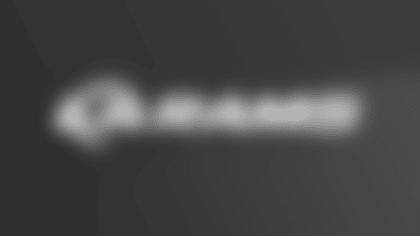It was the last 30 seconds of the Ganesha High School football team's game against rival La Puente High School in October. An already high-intensity game at that point, it became more intense at the very end.
Not because of a play on the field, but rather Ganesha head coach Don Cayer collapsing on the sideline.
"It was the last second of the game, so I just hear one of the coaches call me and say, 'Ariel, coach Cayer is down!'" Ganesha athletic trainer Ariel Castro told theRams.com. "So I turn around, he's on the ground. He first started off with what looked like was a seizure. So we put him on his side, and he was seizing for a few minutes. We activated our emergency plan, and we called for the AED (Automated External Defibrillator) and rescue team, and called 911 as well. And he was still just with us for a little bit, just seizing, and we were waiting for him to come out of it. And then all of a sudden, his heart just stopped.
"So we prepared him to get the AED on him. I was managing vitals for him while I started having the EMTs open up the AED and get started with the compressions, just to make sure that we had all the equipment that we needed, the air mask and everything, to help with breathing. And then we performed CPR for probably about five minutes. Then he came back, and the paramedics arrived and we sent him, and sure enough, he had a heart attack, but he pulled through. So, very intense moment, but it all worked out."
Cayer survived that heart attack and has been recovering since then, thanks to the actions of Cayer and first-responders on-site that day. Those actions are why the Rams in November surprised Castro with tickets to Super Bowl LVIII, which will take place this Sunday at Allegiant Stadium in Las Vegas.
Rams Vice President of Sports Medicine and Performance Reggie Scott, who surprised Castro with the Super Bowl tickets at the team's facility in Thousand Oaks, said the three factors that made the biggest difference in saving Cayer's life were the appropriate resources (especially the AED), the proper plan and the proper personnel – Castro is a certified athletic trainer.
"Having AEDs in every secondary school, on our level, college level, is critical," Scott told theRams.com. "So we knew how important it is to have the right resources and tools that you need to be successful in those areas. Two, emergency action plans. Being prepared in those situations by rehearsing those situations – we do it annually here with the L.A. Rams, we do it every year before the season starts, rehearse those 'worst-case scenarios,' we say – and be prepared for them. So having a really quality emergency action plan. And then lastly, probably the most critical piece, is having the appropriate certified expertise available to be able to initiate those action plans and use those resources, and that's having a certified athletic trainer which they did have."
"When all of those three things come together, you can save somebody's life. And that's a big deal."
The harrowing event underscored the importance of having a certified athletic trainer on-site at a high school sporting event in California, which is the only state that does not regulate the athletic training profession. Dr. Akilah Weber authored and introduced in the state Assembly AB 796, which would require trainers to be licensed. The bill is still going through the legislative process.
"It's huge," Scott said. "We are a licensed, certified, healthcare profession that is equipped to work in an athletic setting, to be able to work with acute, worst-case scenarios like that. We are trained to do that. It's a lot of schooling that goes on, a lot of training that goes on, a lot of emergency action planning that goes on every year, year in and year out. When those scenarios happen, there's a lot that can go wrong, and so having somebody very qualified to be able to handle those situations is critical."
Scott said that this also serves as an example in multiple other ways; namely, this can happen on the football field. It happened to their coach, but there are also lots of young athletes out there. If there are nurses in schools to make sure students are taken care of, why not also have qualified healthcare professionals to take care of the athletes?
"How would you feel for your son or daughter to go to a high school and play in a high-level sport and not have the appropriate health care available for them if something goes wrong?" Scott said. "That's tough, and unfortunately, still, talking about California, first of all, we're not even recognizing licensed athletic trainers, and two, there's tons and tons of high school and secondary schools that don't have certified athletic trainers at their school levels. You've got 200-300 some student athletes out there every day, in August, in the heat, various contact sports, various non-contact sports, that are at risk of either catastrophic or even a career-threatening injury."
Scott also said when talking to Castro, it was "really cool" to hear her say that she "just acted." He told her it was a credit to her training and preparedness for being ready when that happened – something that isn't always the case if one is not certified or trained in those spaces.
While Castro said the situation is "definitely a shock and unexpected," she also said that's what trainers' jobs are for. Besides that, she hopes what people take away from the moment is rehearsing and practicing emergency preparedness, especially when it comes to CPR.
"It's not something that happens all the time, so just definitely not neglecting the fact that it doesn't happen all the time," Castro said. "Because when it does, everybody needs to be prepared and know what to do."













